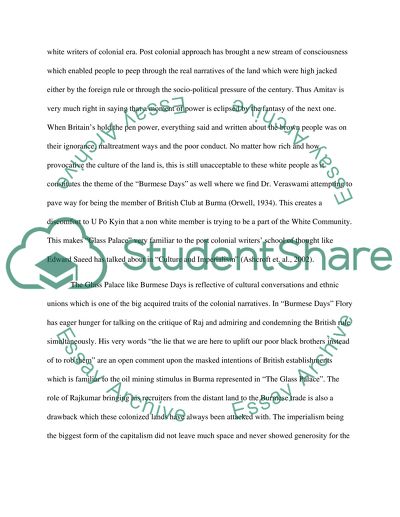Cite this document
(“The Glass Palace and Burmese Days Comparison Essay”, n.d.)
Retrieved from https://studentshare.org/sociology/1434571-comparison-between-two-novels-with-post-colonial
Retrieved from https://studentshare.org/sociology/1434571-comparison-between-two-novels-with-post-colonial
(The Glass Palace and Burmese Days Comparison Essay)
https://studentshare.org/sociology/1434571-comparison-between-two-novels-with-post-colonial.
https://studentshare.org/sociology/1434571-comparison-between-two-novels-with-post-colonial.
“The Glass Palace and Burmese Days Comparison Essay”, n.d. https://studentshare.org/sociology/1434571-comparison-between-two-novels-with-post-colonial.


